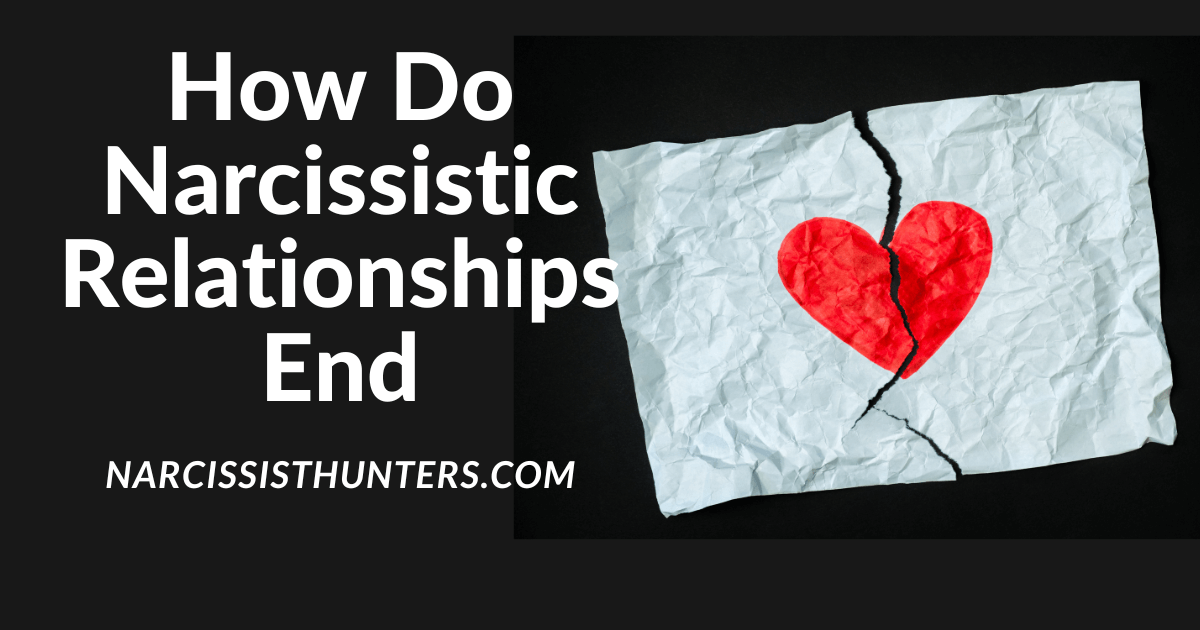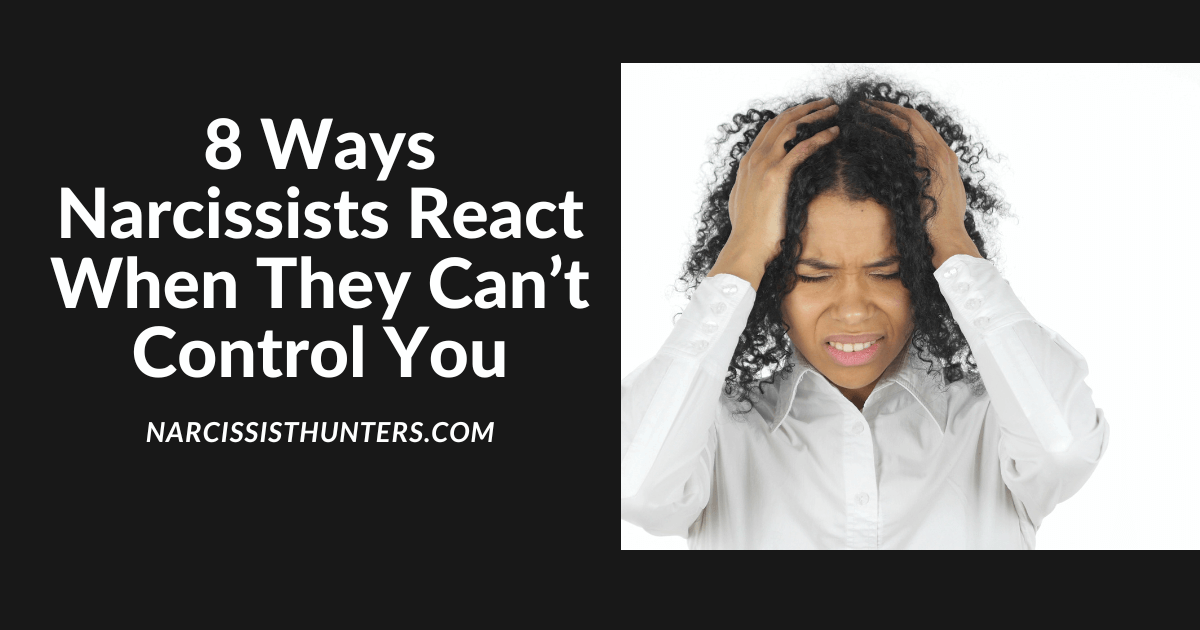Narcissistic relationships are characterized by an unbalanced power dynamic, manipulation and control, lack of empathy, and selfishness. If you’ve ever been in a narcissistic relationship, you know firsthand how difficult it can be to leave. But how do these relationships actually end?
In this post, we’ll explore the signs of a narcissistic relationship, why they end, and the stages of ending a narcissistic relationship. By understanding how narcissistic relationships end, you can begin to take steps towards healing and moving forward towards a happier, healthier future.
Narcissistic relationships can develop slowly over time, as the narcissist gradually reveals their true personality and behaviors. They may start out charming and attentive, but as the relationship progresses, the narcissist’s true intentions become clear.
They may become critical, demanding, and emotionally abusive, using tactics like gaslighting and emotional blackmail to maintain control.
Understanding how narcissistic relationships end is crucial for those who may be in such a relationship or have recently left one.
The end of a narcissistic relationship can be particularly difficult, as the victim may struggle with feelings of guilt, shame, and low self-worth.
Knowing what to expect and how to cope can help individuals navigate this challenging time and move forward towards healing and recovery.
Signs of Narcissistic relationship
Narcissistic relationships are characterized by several distinct signs that set them apart from healthy relationships. Here are some of the most common signs of a narcissistic relationship:
1. Unbalanced power dynamic
In a narcissistic relationship, the narcissist seeks to maintain control over their partner. They may do this through manipulation, intimidation, or emotional abuse. They may also demand that their partner always put their needs first, while disregarding their partner’s feelings and desires.
2. Manipulation and control
Narcissists are skilled manipulators who use a variety of tactics to control their partner. They may use guilt, fear, or intimidation to get their way, or they may use flattery and charm to win their partner’s affection.
3. Lack of empathy
Narcissists are often unable to empathize with their partner’s feelings or needs. They may dismiss their partner’s concerns as unimportant or overreacting. They may also become angry or defensive when their partner expresses emotions that challenge their own sense of superiority.
4. Selfishness and entitlement
Narcissists have a strong sense of entitlement and believe that they deserve special treatment. They may demand that their partner always cater to their needs and desires, while disregarding their partner’s own needs and desires.
Why Narcissistic Relationships End?

Narcissistic relationships can end for several reasons, and understanding these reasons can help victims of narcissistic abuse move on and heal. Here are three common reasons why narcissistic relationships end:
1. The narcissist’s ultimate goal
Narcissists are often motivated by a desire for power and control. They may end the relationship if they feel that they have achieved their ultimate goal — for example, if they have broken down their partner’s self-esteem and made them completely dependent on the narcissist.
The narcissist may then move on to a new victim to continue their cycle of manipulation and abuse.
2. The victim’s breaking point
Victims of narcissistic abuse may reach a breaking point where they can no longer tolerate the abuse and manipulation. This may be a gradual process or a sudden realization, but once the victim decides to leave the relationship, it can be a challenging and emotional journey.
The victim may need support and guidance from a therapist or counselor to navigate the healing process.
3. External factors
Narcissistic relationships can end due to external factors, such as the discovery of infidelity or the narcissist’s involvement in illegal or unethical activities. In some cases, the narcissist may also end the relationship if they find a new partner who they believe will better meet their needs.
The Stages of Ending a Narcissistic Relationship

Ending a narcissistic relationship can be a difficult and emotionally challenging process. Here are three common stages that individuals may experience when ending a narcissistic relationship:
1. Denial and minimization
In the initial stage, individuals may be in denial about the reality of the relationship. They may minimize or justify the narcissistic partner’s behavior, or they may hold onto hope that things will get better.
During this stage, it’s important to seek support and begin to acknowledge the reality of the situation.
2. Anger and bargaining
As the reality of the situation sinks in, individuals may feel angry or resentful towards the narcissistic partner. They may also begin to bargain with the partner, trying to find ways to salvage the relationship.
This stage can be difficult and emotionally charged, but it’s important to remain focused on self-care and seeking support from friends, family, or a therapist.
3. Grief and acceptance
In the final stage, individuals may experience grief and sadness as they come to terms with the end of the relationship. They may also experience a sense of relief or liberation as they begin to move forward.
This stage can be an important time for reflection and personal growth, as individuals begin to rebuild their sense of self and create a new life for themselves.
It’s important to remember that everyone’s journey is unique, and there is no set timeline for moving through these stages.
Final Thoughts
In conclusion, it’s important to recognize the signs of a narcissistic relationship, as they can be damaging and difficult to leave.
Narcissistic relationships can end for several reasons, including the narcissist achieving their ultimate goal, the victim reaching a breaking point, or external factors such as the discovery of infidelity. The stages of ending a narcissistic relationship include denial and minimization, anger and bargaining, and grief and acceptance.
If you are in or recovering from a narcissistic relationship, it’s important to seek support and guidance to help you navigate the healing process. This may include working with a therapist or counselor to develop coping strategies, set boundaries, and rebuild your sense of self.
Remember that healing from narcissistic abuse is a journey, and it’s important to take the time you need to prioritize your own well-being.
In the end, it’s possible to emerge from a narcissistic relationship feeling stronger, more empowered, and more self-aware. By recognizing the signs of narcissistic abuse, seeking support, and taking steps towards healing, you can move forward with confidence and create a life free from the constraints of a toxic relationship.



